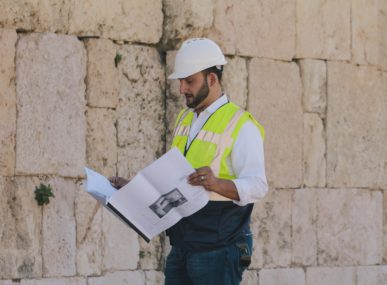Jordan boasts an eye-catching solar panel installation in perhaps the most ironic of locations — above a gas station in central Amman. “This project was our most impressive in terms of architectural beauty,” says Hamzeh Buqaei, founder of Be Solar, the local company responsible for this solar panel — and hundreds more — across Jordan.
At the gas station, Buqaei’s team furnished the rooftop with a sleek, one-piece solar panel. The solar energy generated slashed the building’s power bill, but it was the striking, modern look that turned heads. “Many people know about Be Solar, or are referred to us, due to this iconic project,” Buqaei says.
Symbolically, the gas station project adverts to a time when renewable energy will replace fossil fuels. For Jordan, a country bereft of oil reserves, that greener future cannot come soon enough. At present, Jordan meets demand for power with imported natural gas, which accounts for 93% of the country’s energy mix. This actually constitutes an improvement since 2014, when energy imports reached almost 97% and chewed up more than 40% of the national budget.
Jordan does have one powerful energy card to play — it receives more than 300 days of strong sunlight per year. “We do not have many [other] resources, so it was a natural selection for us to go for solar,” Buqaei says. Be Solar has helped this vital switch since 2013, finding solar energy solutions for households, commercial buildings, mosques and more.
Buqaei has two key aims moving forward — bringing much needed renewable energy solutions to poorer communities, while defending Be Solar’s market position amid the rise of cheaper competitors.



